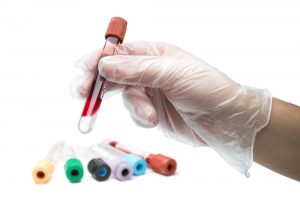
25 Sep How Often You Should Have A Blood Exam
While most people are aware of blood exams, many still questions whether they should receive one – and if so, when? Even if you believe yourself to be in perfect health, a regular blood exam can reveal information that could require regular monitoring or lifestyle changes to prevent an emerging condition from becoming a medical crisis. Learn at what point these critical tests should become part of your annual physical examination, and which tests you can expect your doctor to order – even or request yourself.
Why Is It Important To Get Tested?

Blood tests are crucial for monitoring, prevention early detection and the diagnosis of a condition, illness or disease. They can also assist in determining the stage of some ailments, and our ability to treat and survive them. However, it is important to realize that blood test results are not a substitute for medical diagnosis. A physician should go over your results to explain any relevant concerns and treatment options ‒ as well as answer any questions you may have.
Although every doctor may have a preferred set of tests, there are several that every doctor will run. A common rule of thumb is to have an exam done with your annual physical. If your doctor does not offer a blood exam, you should request one. The following tests are typical:
- Complete blood count (CBC) – Measuring several components of your red and white blood cells, and platelets, different elevations and features can indicate a number of illnesses or conditions. One common diagnosis, is anemia. As described by WebMD, this is the test you might get as part of your annual checkup.
- Liver panel – To indicate the health of your liver, this test measures your enzymes. This is often important for people who take certain medications, or need to monitor a known condition or disease.
- Renal panel – The measurement of sodium, potassium, calcium, urea nitrogen, creatinine, carbon dioxide, chloride, glucose and phosphate determine your all- important kidney function.
- Lipid panel – Known as a cardiac panel, this test measures several molecules for markers that may indicate heart disease, such as good and bad cholesterol levels, and triglycerides. You may also request that they test for elevated C-reactive protein, an independent marker of cardiac risk. And homocysteine, a toxic amino acid also linked to heart disease.
- Blood glucose – By determining how your body utilizes sugar based on blood sugar levels, doctors can confirm a risk or diagnosis of diabetes, and appropriately treat it.
When You Should Start Being Tested
If you have yet to begin annual blood exams as a teenager, you should do so by the age of 20. At this point, your physician will run a standard chemistry panel and a CBC. As you age, there are several other tests that should be added. In early adulthood, this will include your potential for heart disease by testing your cholesterol and blood sugar levels. As you approach middle age, additional profiles will look at thyroid function, your risk of a heart attack or stroke, and other conditions. To learn specific information about which tests you should have performed, when, and why, read our blog post on recommended annual blood exams.
Medical Arts Laboratory offers an extensive test menu at the most affordable prices. We are a state-of-the-art clinical lab – certified by CLIA, AHCA and AAB – which has been serving local Florida communities for 20 years. View our full list of services or contact us us today with any questions!




No Comments